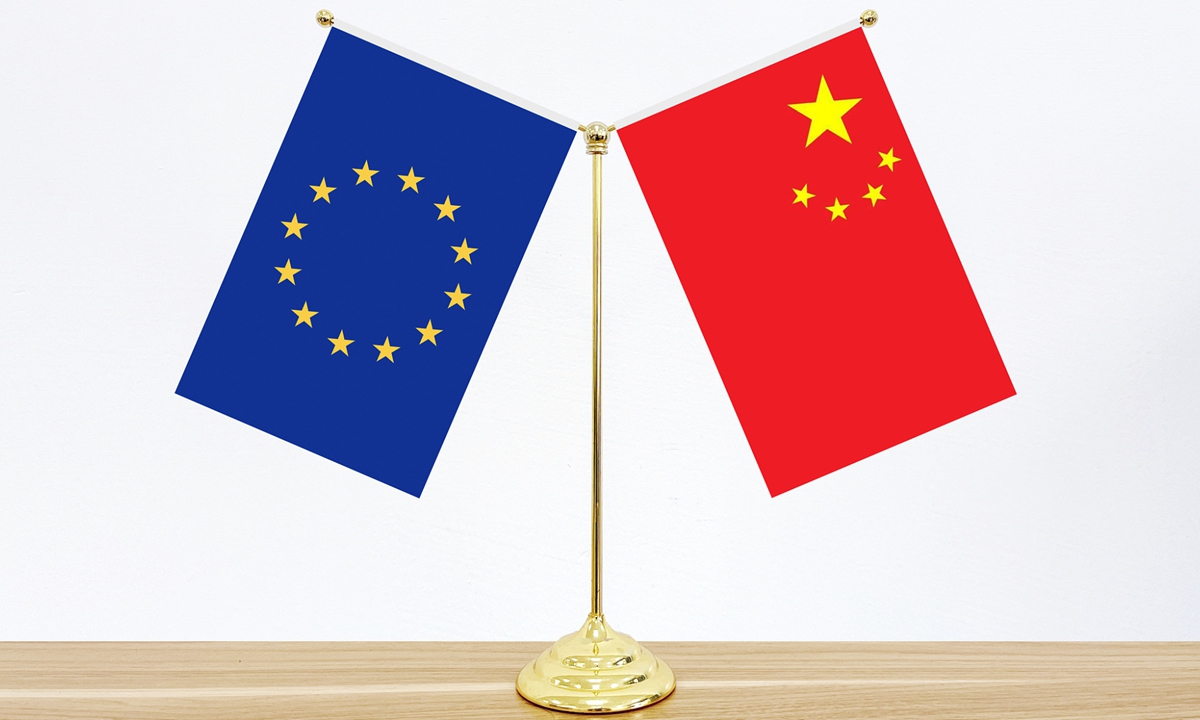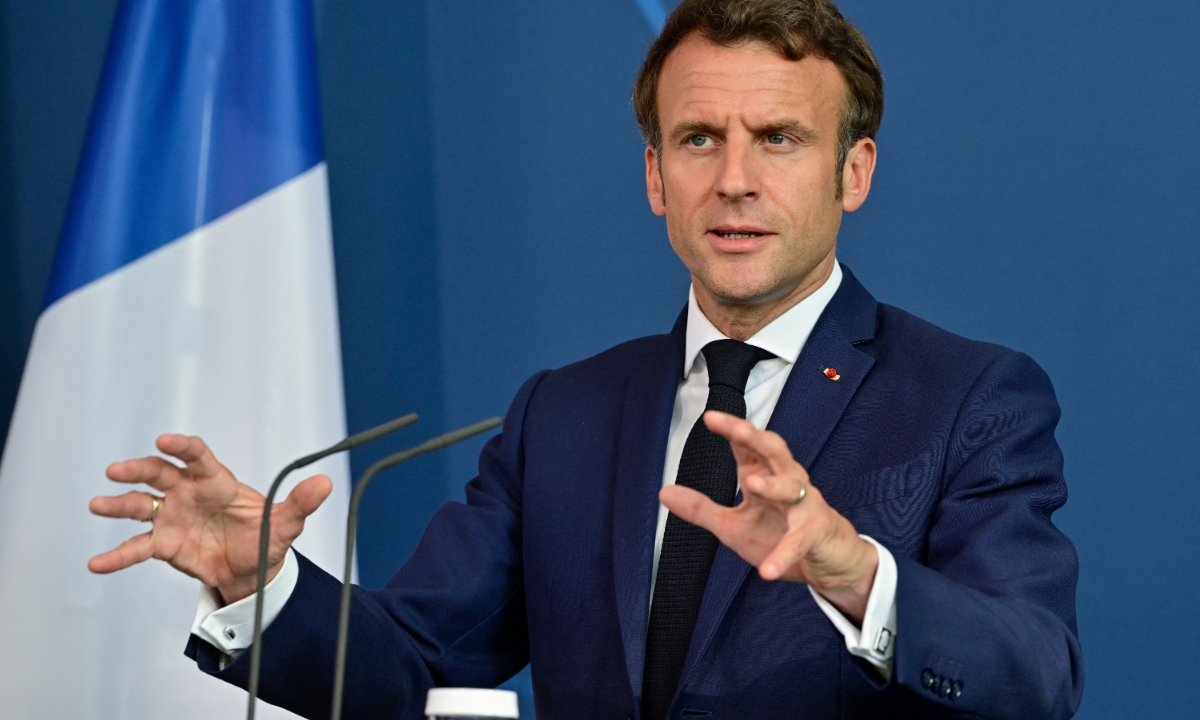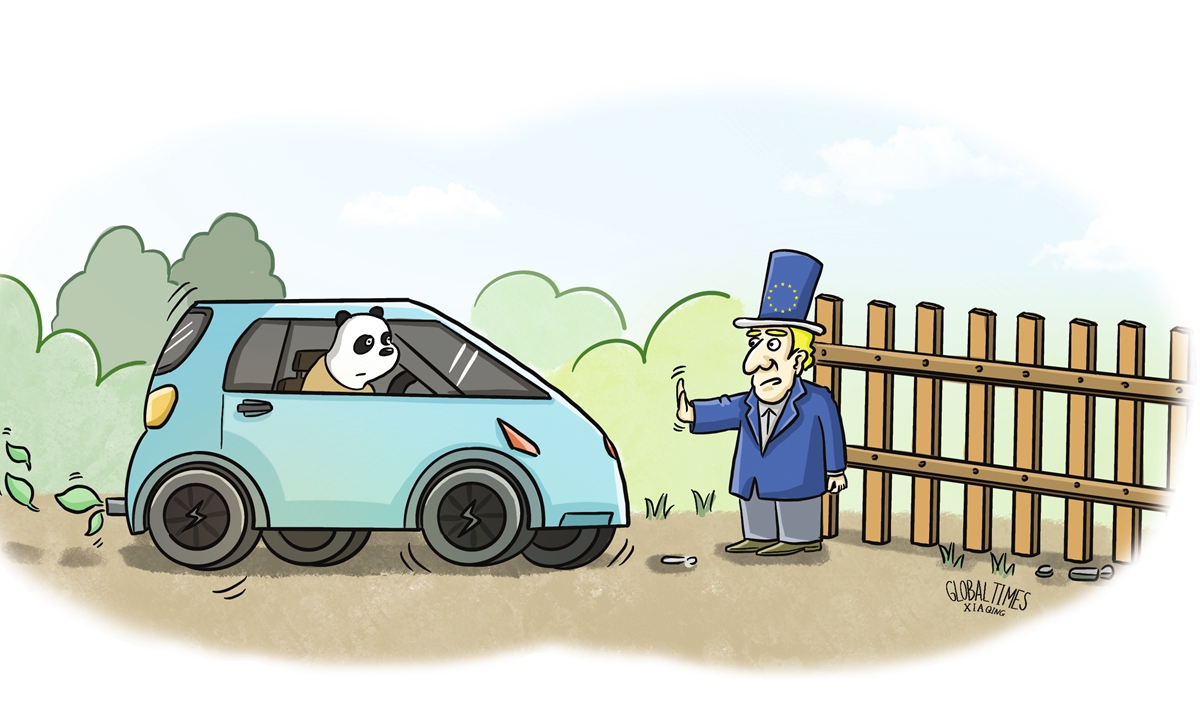China, EU to hold economic and trade dialogue, ‘litmus test’ for both sides to iron out differences

China EU Photo:VCG
The 10th China-EU High Level Economic and Trade Dialogue will be held on September 25 in Beijing, China's Ministry of Commerce said on Thursday. Chinese observers said the restart of the vital and proven mechanism in the in-person format offers a litmus test for China and the EU to work out their differences through dialogue.
The dialogue will be co-chaired by Chinese Vice Premier He Lifeng and Executive Vice President of the European Commission (EC) Valdis Dombrovskis.
In the face of common economic pressures from a sluggish recovery, the two trade and investment partners should seek to solve problems in a pragmatic manner, working out differences on trade issues, supply chain problems and the EU's intensifying efforts to screen Chinese investment, while not targeting each other, Chinese experts said.
With bilateral trade at a record high, the Chinese market is something European companies will not give up, analysts said, noting that working out trade barriers, technical disputes, and working on new areas of cooperation to drive trade and economic growth can help the two avoid risks posed by the pandemic, the Russia-Ukraine conflict and the US.
Chinese analysts said that the EU's recent restrictive moves toward Chinese products and investments were aimed at increasing its bargaining chips, but they warned such wishful thinking may not play out for the Chinese side, and the EU should reflect upon its own policies if it wants to gain more market access and competitiveness in the Chinese market.
Wang Yiwei, director of the Institute of International Affairs at the Renmin University of China, told the Global Times on Thursday that the trade and economic dialogue will be the first of the three vital dialogue mechanisms between China and the EU to reemerge in a face-to-face format after the pandemic, the other two being strategy and people-to-people exchanges. It's a sign that China-EU ties are shaking off the impact of COVID-19.
"An in-person meeting is vital to restart the mechanism," Wang said. "If China and the EU - two of the three economic poles of the world - could join hands in cooperation or return their ties to normal, the two will stand a better chance in the recovery from the economic onslaught of the pandemic. The two will probably be the first to walk out of the shadow of the pandemic."
Such cooperation, based on high levels of complementarity, will yield positive results for the construction of a new type of globalization that is good for the global supply chain and offsets the impact of US decoupling moves and its crackdown on China, Wang said.
The talks will be held amid downside factors as China-EU trade and investment is facing some tension due to the EU's efforts to "de-risk" from Chinese companies and investments.
Last week, European Commission President Ursula von der Leyen announced that the EU is launching a probe into Chinese electric vehicles, claiming the prices of imported Chinese vehicles are being kept "artificially low by huge state subsidies."
The bloc is also reportedly considering its so-called dependence on China for lithium-ion batteries and fuel cells, which is being compared it to its dependence on Russian energy.
In semiconductors, the EU's European Chips Act, which enters into force on Thursday, calls for reducing the bloc's dependence on suppliers outside Europe.
In early September, the head of the China Chamber of Commerce to the EU pointed out that the EU's foreign direct investment review mechanism is posing increasing challenges and uncertainty for Chinese companies' expansion and investment in Europe.
In response to a reported German move to impose further restrictions on Chinese vendors Huawei and ZTE, China's Foreign Ministry spokesperson Mao Ning said on Thursday that China has always opposed any country's politicization of economic, trade, science and technology issues. "We believe that all countries should provide a fair, non-discriminatory and transparent business environment for businesses."
In this context, Cui Hongjian, professor with the Academy of Regional and Global Governance with Beijing Foreign Studies University, told the Global Times on Thursday that the dialogue serves to stabilize and develop China-EU ties.
"The platform is a litmus test to see if the two could return to their old days of tackling issues and managing differences through dialogue," Cui said.
"It could be a forum to deepen communications over policy issues, and it could also be a venue for the Chinese side to help correct some of the wrong concepts the EU has on China," Cui said, noting that facts are showing that the cooperative side of bilateral ties far outweighs the competition side.
The two sides are expected to work on differences over the EU's de-risking efforts, Wang said. Opposing trade protectionism and seizing new opportunities in digital and green cooperation are also likely to be discussed, Wang noted.
During the first eight months of this year, the EU was China's second-largest trading partner, with bilateral trade down 1.5 percent year-on-year to 3.68 trillion yuan ($503.5 billion).
In a paper released on Wednesday, the European Union Chamber of Commerce in China suggested that the EU should continue to proactively engage with China, reject calls for disengagement, and ensure that the EU's China strategy reflects both existing and emerging priorities and challenges, striking the right balance between collaboration and competition.
The Mercedes-Benz Group AG's top executive sees measures to decouple from China as a risk to healthy competition and global automotive supply chains, according to a report by Bloomberg on Tuesday.
Amid a global slowdown in FDI, companies from the EU still focus on the Chinese market, drawn by the vast growth opportunities.
During the first eight months, FDI from France shot up by 105.6 percent from the same period last year, data showed.
FDI from Switzerland, the Netherlands, and Germany increased by 59.2 percent, 25.3 percent and 20.8 percent.
During the 9th High-Level Economic and Trade Dialogue, held in July 2022, the two sides agreed to make joint efforts to promote practical cooperation on economic and trade issues, and to jointly address challenges facing the global economy.




